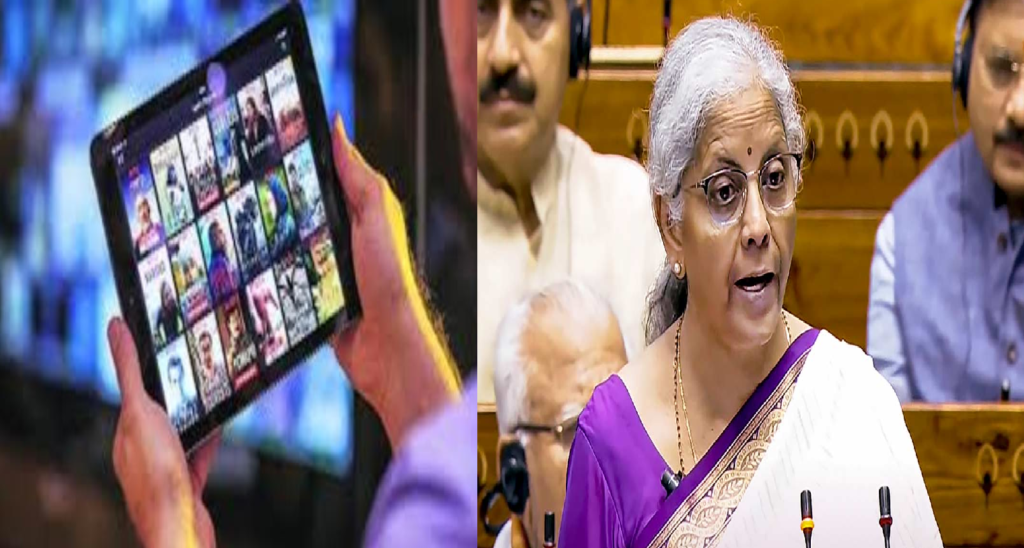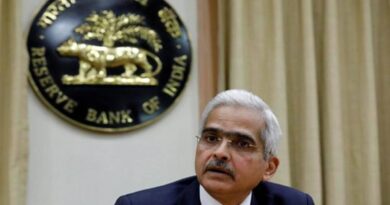Entertainment Tax in India 2024: Everything You Need to Know
Entertainment Tax in India 2024: Everything You Need to Know
Entertainment tax in India is a fiscal levy imposed by state governments on various entertainment forms like movies, concerts, and amusement parks to generate revenue. This tax impacts ticket prices, production costs, and consumer accessibility. Current rates vary by state, reflecting different economic priorities. Understanding these nuances is crucial for stakeholders. The tax structure continues to evolve with technological advancements, and future strategies may include simplified systems and international best practices to foster content creation and industry growth.
Entertainment Tax in India 2024: Introduction to Entertainment Tax
Entertainment tax is a fiscal levy imposed by the government on various forms of entertainment activities. The primary objective of this tax is to generate revenue by taxing leisure activities that are seen as non-essential. Historically, the inception of entertainment tax dates back to the colonial era, when it was introduced as a means to augment the state treasury. Over the years, the framework of this tax has undergone several modifications to adapt to the evolving landscape of entertainment and economic policies.
In India, the significance of entertainment tax lies in its contribution to the state revenue which, in turn, funds public services and infrastructural development. The tax has been pivoted to align with the broader economic strategies of the government. Various states in India levy this tax, with rates often varying widely based on the type of entertainment and location. Generally, entertainment tax applies to movies, live performances such as concerts and theatre shows, exhibitions, amusement parks, and sometimes even sporting events. These activities are targeted due to their lucrative nature and considerable audience base.
https://aamnewsnetwork.com/latest-technological-innovations-in-the-automobile-industry/
The evolution of the entertainment tax system in India exhibits a fluctuating pattern. Initially, it was a straightforward tax on movie tickets and subsequent revenues generated from cinema halls. However, with the advent of multiplexes and a surge in live events, the structure of this tax had to be recalibrated. This recalibration was further influenced by technological advancements which expanded the definition of entertainment to include electronic and virtual mediums.
In the contemporary economic framework, entertainment tax serves dual purposes. It not only mobilizes additional revenue for state funding but also attempts to regulate the industry by maintaining a balance in pricing, thereby ensuring accessibility for a diverse demographic spectrum. The imposition of this tax acts both as a revenue stream and a regulatory mechanism, aiming to foster balanced growth in the entertainment sector. Understanding the nuances of entertainment tax is essential for stakeholders within the ecosystem to navigate its implications efficiently.
Entertainment Tax in India 2024: Current Entertainment Tax Rates in India
As of 2024, the entertainment tax rates in India vary significantly across different forms of entertainment and regions. These taxes are primarily imposed by state governments, resulting in a diverse spectrum of tax rates that can differ from one state to another. For instance, while states like Maharashtra and Tamil Nadu impose higher entertainment taxes on films, sports events, and amusement parks, states like Gujarat and Karnataka may have slightly lower rates. This discrepancy largely stems from the varied economic priorities and fiscal policies of each state.
In Maharashtra, the entertainment tax for movie tickets can range from 15% to 25%, depending on the type of cinema and ticket price. Meanwhile, in Tamil Nadu, this rate can go up to 30%. On the other hand, states such as Gujarat have implemented a more moderate tax rate, often capped at around 10% to 15%, for similar entertainment categories. Amusement parks and live performances are also subject to state-specific taxation, which can range anywhere from 5% to 20% across different territories.
When comparing these rates to previous years, there has been a noticeable trend towards increasing tax rates in certain states. For example, Tamil Nadu raised its tax on movie tickets from 25% to 30% over the past five years, reflecting both inflationary pressures and enhanced public expenditure needs. Conversely, there has been a slight reduction in states like Karnataka, where a 2-3% decrease in rates was observed to encourage cultural events and local festivities.
The rationale behind these differences often includes factors like the state’s revenue requirements, cultural emphasis on different forms of entertainment, and attempts to balance public access to entertainment with fiscal health. Understanding these variable rates is crucial for businesses within the entertainment industry, as they must navigate these financial nuances to operate efficiently. The following table provides a summary of entertainment tax rates across some key states in India for 2024:
Table: Entertainment Tax Rates in India 2024
State | Movie Tickets | Amusement Parks | Live Performances
Maharashtra | 15%-25% | 10%-20% | 5%-18%
Tamil Nadu | Up to 30% | 15%-25% | 10%-20%
Gujarat | 10%-15% | 5%-15% | 5%-10%
Karnataka | 12%-18% | 8%-15% | 7%-12%
These tax rates highlight the complex landscape of entertainment taxation in India, underlining the necessity for stakeholders to stay informed about ongoing changes to maintain compliance and optimize their financial strategies.
Entertainment Tax in India 2024: Impact of Entertainment Tax on Industry and Consumers
The impact of the entertainment tax on both the industry and its consumers is multifaceted, influencing various aspects from ticket prices to overall profitability. When it comes to the entertainment industry, heightened tax rates often lead to increased production costs. For filmmakers, theatre owners, and event organizers, these additional expenses can potentially translate into reduced budgets for projects, limiting the quality and scale of productions. Consequently, stakeholders must navigate complex financial decisions to maintain any semblance of profitability in a competitive market.
An escalating tax rate further affects ticket prices, creating a direct correlation between taxation and the consumer burden. When the costs to produce entertainment rise, prices for tickets to movies, concerts, and other events generally follow suit. This typically results in diminished audience turnout, as consumers may hesitate to spend more on leisure activities that have become significantly pricier. The affordability of entertainment becomes a pressing issue, particularly for middle and lower-income brackets, where discretionary spending is limited.
From a consumer standpoint, the entertainment tax directly impacts their access to various forms of amusement. Higher ticket prices may compel consumers to seek cheaper alternatives or forgo entertainment altogether, leading to a potential decline in overall consumer satisfaction and public morale. Interviews with consumers often reveal a sense of frustration stemming from increased costs, with many expressing concerns over the affordability and accessibility of entertainment options that were previously enjoyed more freely.
Industry experts also weigh in on this critical issue. Prominent figures within the film and arts sectors frequently highlight the need for a balanced approach to taxation. They argue that a sustainable tax strategy could help foster a more vibrant entertainment landscape that benefits all stakeholders. Real-world insights from these experts underscore the necessity for policies that can drive inclusive growth without disproportionately burdening consumers or stifling industry creativity.
https://digitalamitkaul.online/entertainment-round-up-whats-trending-in-movies-tv-and-music/
Future Outlook and Policy Recommendations
The landscape of entertainment tax in India is poised for significant transformation in the coming years. Experts forecast a shift towards more robust and nuanced taxation strategies that align with the evolving nature of the entertainment industry. With the continuous growth of digital platforms, it is increasingly important to develop a tax framework that accommodates both traditional and modern forms of entertainment.
One potential reform is the simplification of the current taxation system. By consolidating various taxes and implementing a unified entertainment tax, the government can reduce administrative burdens and enhance compliance. This approach could not only streamline revenue collection but also provide clearer guidelines for businesses operating within the industry.
Furthermore, learning from international best practices could be beneficial. For instance, countries like the United Kingdom and Australia have successfully implemented digital service taxes targeting online entertainment providers. Such policies ensure that digital giants contribute their fair share to national revenues while fostering a competitive environment for local content creators.
To balance government revenue needs with industry growth, it is crucial to offer incentives for innovations within the entertainment sector. Tax credits for the production of culturally significant content or subsidies for pioneering technology-driven projects could spur creativity and investment. These measures would not only boost the domestic entertainment landscape but also position India as a global hub for content creation.
Technological advancements and the rise of digital platforms present both opportunities and challenges for entertainment taxation. Adapting to these changes requires a forward-thinking approach that addresses issues like content distribution, intellectual property rights, and cross-border digital transactions. Developing a regulatory framework that is adaptable to rapid technological progress will be essential for maintaining a fair and effective tax system.
Ultimately, the future of entertainment tax in India hinges on a balanced approach that supports industry growth while ensuring fair taxation. By integrating expert insights, international comparisons, and innovative policy recommendations, India can create a sustainable taxation environment that benefits both the entertainment sector and the economy at large.





Pingback: Telegram CEO Pavel Durov Arrested in Paris: Is Girlfriend Yulia Vavilova Involved? - DNN
Pingback: Mastering the Stock Market: A Beginner's Guide